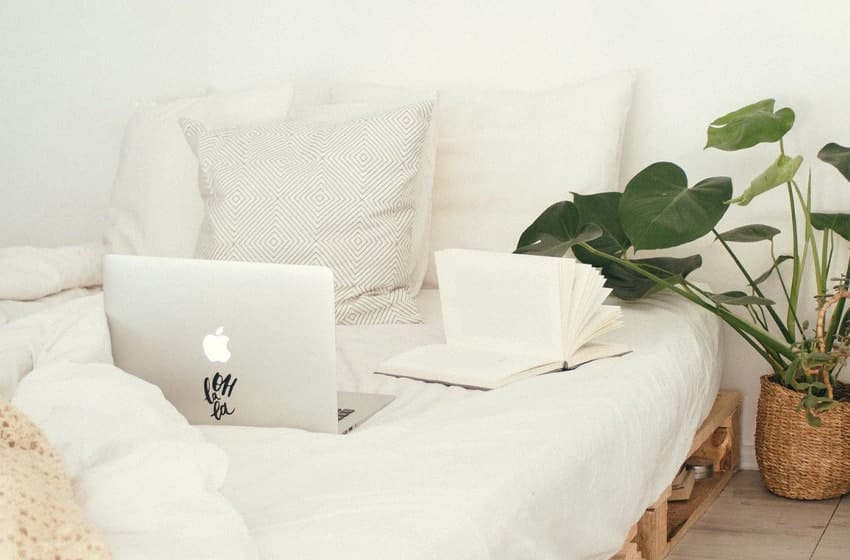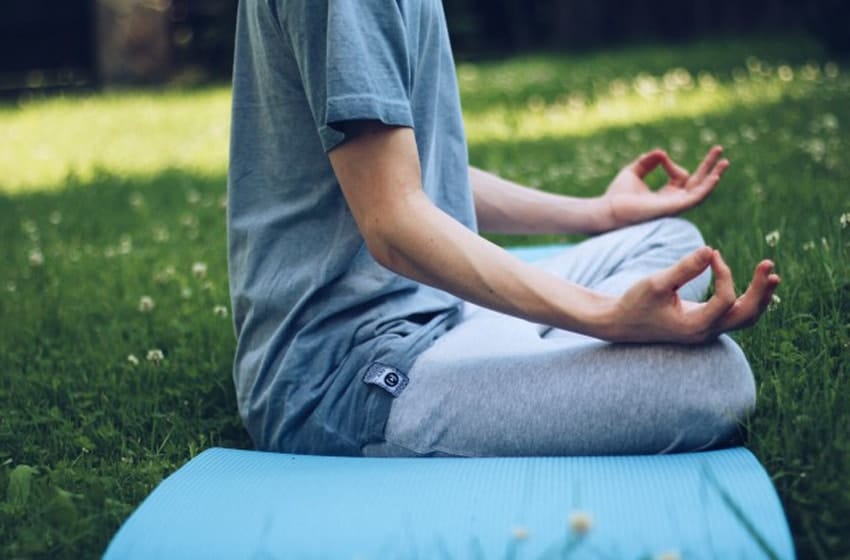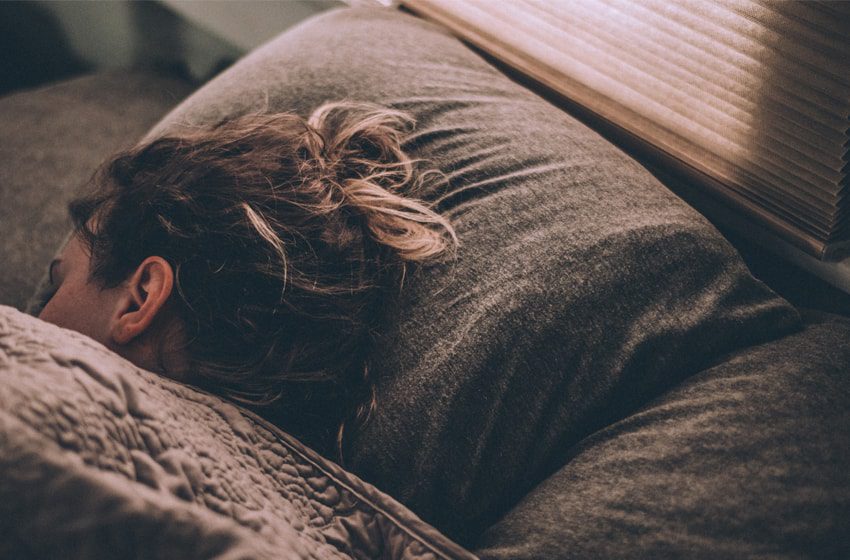If you are having trouble getting good sleep at night, then you’re not alone. Sleep deprivation is quite common in modern society. It affects every aspect of our biology. Studies have shown that poor sleep causes immediate negative effects on your mental health, hormones, and brain functions.
Sleep deprivation, which simply means not getting 7 to 8 hours of sleep regularly, is linked to stroke, diabetes, obesity, cognitive decline and premature aging.
Matthew Walker, who is a Sleep Scientist at Google and a Professor of Neuroscience at UC Berkeley, said in his 2019 TED speech that “Sleep is a non-negotiable biological necessity and not an optional lifestyle luxury.”
Sleep restrictions affect our metabolism negatively. We need that time to rest and rejuvenate our mind and body to keep ourselves healthy.
Researchers have identified various habits and practices, known as sleep hygiene, that intend to improve your ability to fall asleep and stay asleep.
You need to get enough, quality sleep to be your best. It only takes a few simple lifestyle changes to help you get the restful sleep you need.
Benefits of Good Sleep
Getting quality sleep at night is one of the best things you can do for your health and well-being. It is as important for you as eating a healthy diet or exercising.
Healthy sleeping habits help your body regulate blood sugar levels effectively, aid immune system functioning, and improve your heart health by reducing stress. Moreover, it is a necessity to keep your brain healthy and well-functioning.
In short, sleep plays an important role in:
- building mental and emotional resilience
- controlling your energy and body temperature
- keeping your immune system working well
- improving your brain functions and restoring your memory
- keeping your heart and blood vessels healthy
- controlling your weight and regulating blood sugar levels
- stimulating tissue growth and repairing muscles
- balancing your hormonal levels
Sleep makes us better at almost everything, without a second thought. Getting quality sleep at night is a mandatory step towards a long and healthy life
In this article, we will talk about six positive and effective ways that will help you sleep better at night.
6 Ways to Help You Sleep Better
1. Fix A Regular Sleep Schedule

Try going to bed and getting up at the same time every day. Your body adapts to rhythm physiologically. Being consistent with your sleep timing reinforces your body to sleep better.
Studies have shown that sleep regularity is associated with higher levels of calmness and happiness, while an irregular sleeping cycle is associated with delayed wake timings, poorer academic performance, and hormonal imbalances.
Avoid long or irregular daytime naps as they can interfere with night-time sleep and can affect your health negatively. If you choose to nap, limit yourself to up to 30 minutes. Studies suggest napping for 30 minutes or less can enhance daytime brain function.
Experts recommend between 7 to 8 hours of sleep at night for a healthy adult. Choose a time when you are most likely to feel tired and sleepy. Consider following your sleep schedule consistently, even on the weekends.
2. Adopt Healthy Eating Habits

What you eat and drink affects your sleep too. Your digestive system continues to work even when you’re asleep. If you’re consuming heavy meals before going to bed, then you’re not giving your stomach adequate time to rest. Besides good food, try to avoid eating late in the evening to let your body repair itself while you’re asleep.
The best nutritional plan is to have a varied diet with plenty of nutritious foods, while skipping sugary, pre-packaged and processed foods as much as you can.
Reconsider what you drink before going to bed. Avoid consuming caffeine, alcohol, and cold/energy drinks late in the evening. Instead, you can have a warm, milky drink or a cup of herbal tea for calmness and relaxation.
Also read: 10 Superfoods You Should Add To Your Diet
3. Increase Light Exposure During Daytime

We have evolved to stay awake when it is light and fall asleep when it is dark. Exposure to bright light or natural sunlight during the day helps keep your natural circadian rhythm healthy. It affects your mind, body temperature, hormones, and other factors that determine whether you feel alert or sleepy.
During increased daylight exposure, your body temperature rises; releasing stimulating hormones (such as cortisol) and delaying the release of sleep-promoting hormones (such as melatonin). As the sun goes down, the melatonin levels in the blood increase due to low exposure to light, making you feel sleepy.
A study found that 2 hours of bright light exposure during the day increased sleep efficiency in adults by 80%. To increase your exposure to light, you can start your day by having breakfast near the window or outside, or investing in bright-light devices or bulbs for your place.
4. Create A Peaceful Sleep Environment

Your bedroom environment is one of the key factors in getting restful sleep at night. Even the little things in your bedroom can make a big difference in your sleep quality. Ensure that your bed is neat and clean and your room temperature is moderately cool before going to sleep. Try to minimize the external light and noise from getting into your room or use a mask.
Consider houseplants for your room. Studies have shown that certain indoor plants can help lower stress, deter illness, as well as purify the air by removing toxins.
Avoid using your laptop, cellphone, or any other light-emitting screens just before bedtime as they make it difficult to fall asleep due to blue light exposure to our eyes. Make sure your bedroom is a quiet and relaxing place to help you sleep better.
You can also consider improving your bedroom feng shui by arranging your furniture in a certain way to maximize the flow of positive energy into your living spaces.
5. Practice Mindfulness and Meditation

Mindfulness and sleep are linked together naturally. It influences your brain functions positively and helps in breaking the train of your everyday thoughts, allowing you to sleep better and peacefully.
Practicing mindfulness and meditation can be thought of as useful techniques to manage sleeping issues. Growing evidence suggests that breathing and mindfulness techniques do wonders in reducing stress, anxiety, depression, managing relationship problems, and increasing productivity, and now it is widely recommended in dealing with sleep disorders.
There are various meditation techniques out there. Here are the best meditation techniques for beginners to get started. Once you experience the benefits of meditation techniques, you will be likely to include them as a part of your daily self-care routine.
You can also consider other relaxation techniques in the evening like listening to soft music, reading a book and taking a hot bath.
6. Do Physical Activities Regularly

Moderate exercise and physical activity on a regular basis can help you sleep better. In fact, it is one of the best methods proven by science to improve your sleep and overall health. Evidence shows that even 30 minutes of moderate workout a day can help you get restful sleep at night.
A study on adults revealed that doing regular exercise nearly halved the amount of time they used to take to fall asleep. It also helped in reducing anxiety and stress levels, which is one of the most common causes of sleep problems. Scientific studies have also found that exercise can lower the severity of insomnia and other sleep disorders.
Workout affects your sleep as much as your quality diet. However, you have to avoid taking part in any physical activity close to your bedtime.
Final Thoughts:
Sleep plays an important role in your health. If you are into optimal health and well-being, then quality sleep must be your topmost priority. Trying out these simple tips, from sleep schedule to including physical activity in your daily routine, will definitely help you sleep better and wake up energized.

Hello reader, I’m Abhishek Shankhwar, a mental health & wellness enthusiast and a digital marketing specialist by profession. As a passionate health and wellness writer, I feel obligated to inform, inspire, and reach out to so many people. In the meantime, you’ll always find me reading books, writing inspiring content, and cooking delicious food. Connect with me on LinkedIn.





































